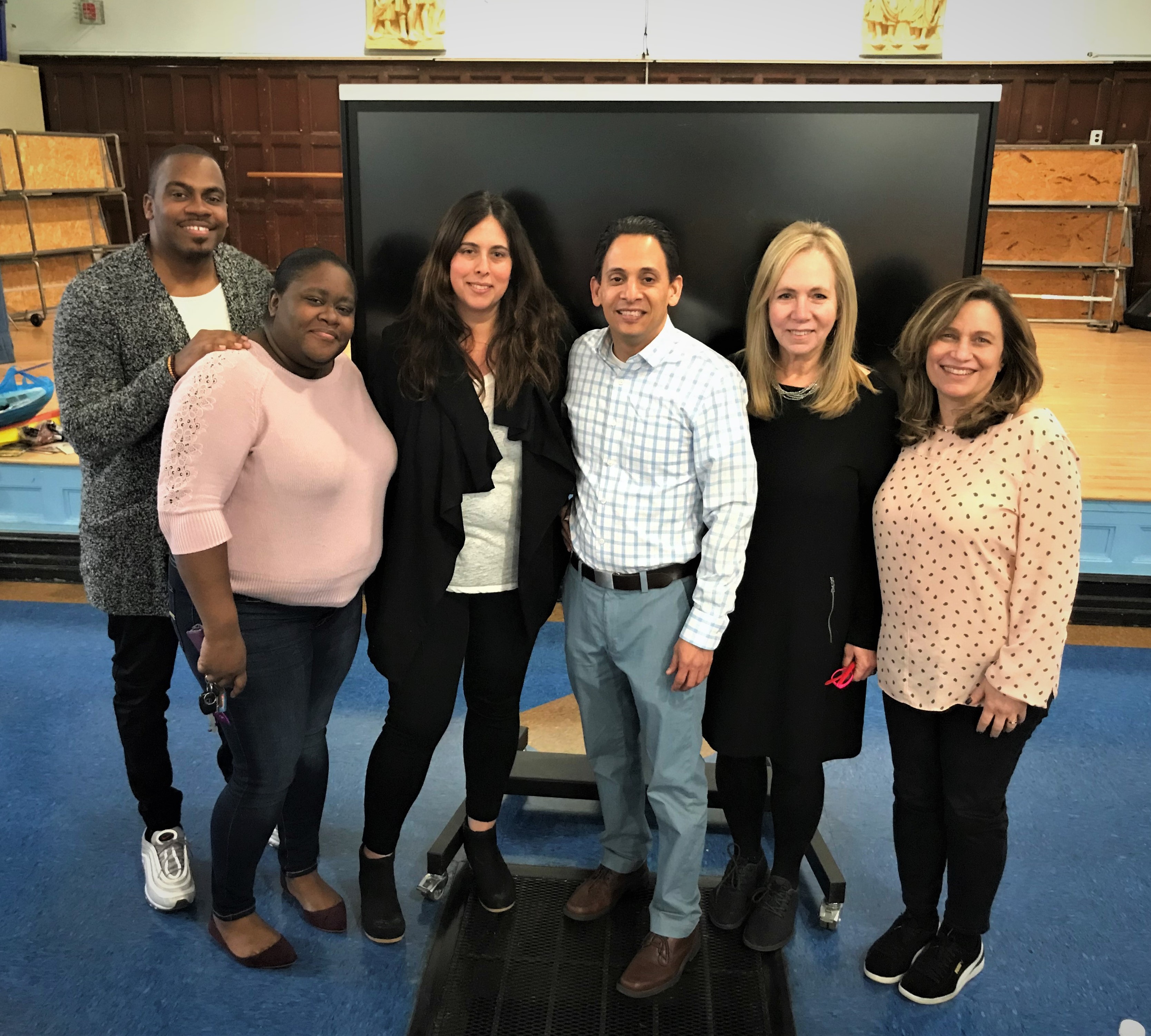February Person of the Month: Elvin Veloz

Pictured left to right: Joel Scott, Instructional Coach; Renee Prince, Social Work Consultant; Rebecca Lew, Principal; Elvin Veloz, Social Worker; Ronni Gambardella, Program Director; Amy Greenbaum Strauss, Social Work Consultant
Elvin is the School Social Worker at The Belmont School – P.S. 32, a first-year partner school in the Bronx. In addition to attending to his own caseload and emergency situations that arise at the school, Elvin also serves as the liaison between P.S. 32 and Turnaround’s community mental health partners. He was nominated by Program Director Ronni Gambardella who notes “the fact that he embraced this huge undertaking with such grace, patience and intuitiveness reflects his persona and clinical skills.”
THE 180: Did you always know you wanted to work in education?
ELVIN VELOZ: No, I initially planned on going into law but changed my mind. My girlfriend at the time was a teacher, so I decided to teach as well and became a high school teacher. I then went into social work so I could work more directly with families and children.
THE 180: P.S. 32 serves prekindergarten through fifth-grade students. How does that differ from working with high school students?
ELVIN VELOZ: With older kids, you can just talk to them. Younger ones can’t communicate exactly what they feel, so you have to be creative. That’s when a lot of play therapy comes about. If you sit down and engage a student in some drawing, he might draw something about what’s really going on and you can elicit conversation from there. Or sometimes when we engage in play, a student might get frustrated over something really small. So I can ask, “It seems like something else is bothering you besides this Play-Doh. Is there something else on your mind?” It opens up the conversation.
THE 180: I understand you are the liaison between the school and the community mental health partners. What does that facilitation look like?
ELVIN VELOZ: We organize, coordinate and plan to get services for the children. The [community mental health partners] work in our school so I try to provide them with a nice place to work. They do a great job. Sometimes it feels like it’s added work on my end, but it’s helping us to serve more children than we were able to in past years.
What’s really nice about the mental health partners is that they’re in the building. They can provide some of the individual counseling here, so students don’t have to be referred outside. Some families might not want to send their children out, or they won’t follow through, so we’re able to still provide individual support within the school day.
THE 180: You have four guidance counselors, three community mental health partners and about 900 students. How do you divide and conquer and make sure you’re reaching as many students as you can?
ELVIN VELOZ: I sat down with Amy Greenbaum Strauss to brainstorm how we could better serve some of our high-needs children – students who didn’t necessarily need outside services, but more than what the classroom provided.
So we created a schedule during the children’s lunch time for our mental health partners to do small group sessions. We have 13 groups with between three and five students. Each group focuses on a specific goal – it may be general social skills, or problem solving or self-regulation. This allows us to provide services to about 70 more children on a weekly basis while the school guidance counselors and myself to continue our work with more at-risk students, meet with parents and more.
THE 180: What changes have you noticed in the school since partnering with Turnaround?
ELVIN VELOZ: It’s a little soon, but I see our teachers are talking a little bit differently about our children. More and more, they recognize that our students come to school with trauma – that it’s not just a bunch of disrespectful children, but they see the issue a bit deeper than before.
THE 180: What do you hope the future will bring?
ELVIN VELOZ: I hope to see our school become much more aware of the trauma our children are exposed to – where staff is more educated about how to work with students, are more sensitive and responsive and have the skills to do so. Turnaround is giving our staff the skills through morning meetings and helping them understand where these children are coming from. So I hope to see our school calmer in the next few years, where we’re able to be more preventative rather than responding to crisis.

Share This Story